Relationships are fun, but it can come with a lot of pain when you’re dating a narcissistic partner. Here’s how you’re losing your power in a relationship with a narcissist.
The core problem in relationships with narcissists is that they prioritize power and sacrifice the relationship to get it, while their partners prioritize the relationship and sacrifice themselves to keep it.
Narcissists put themselves first, and so do their partners. Due to their insecurities, they constantly scan their environments and monitor their interactions to see who’s on top, and they use impression management, manipulation, and abuse to ensure they are.
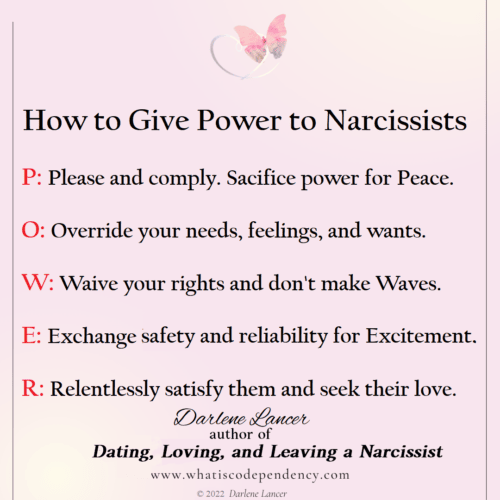
In order to improve a relationship with a narcissist, people must stand their ground and equalize the power dynamics.
Power Dynamics In Relationships: How You’re Losing Your Power In A Relationship With A Narcissist
1. Pleasing
Narcissists sacrifice peace for power, and most people sacrifice their power for peace. Whereas narcissists want to get ahead, other people want to get along. They want to avoid conflict, narcissistic rage, or abandonment. But continuing to accommodate and give in fuels a narcissist’s tantrums and demands, like indulging a spoiled toddler.
Pleasers and accommodators believe that if they give narcissists what they want, eventually they, too, will get their needs met. But narcissists are selfish and think only about what is good for them and how to get it. Once you understand the equation, you can better get what you need and want.
Related: 9 Toxic Personality Types And How To Deal With Them
2. Overriding
Loved ones of narcissists go along to get along. They sacrifice themselves, and override their needs, wants, opinions, and feelings to have a better relationship. They end up harboring resentment and find that their sacrifice is for naught. Narcissists expect and they feel nothing is owned in return…unless they have to pay a price!
Meanwhile, those around the narcissist feel worse about themselves. Their self-esteem, confidence, and self-worth suffer, which can lead to anxiety, depression, and despair.
3. Waiving Your Rights
Typically, people don’t set boundaries with narcissists. They rather waive their rights than make waves. They’re afraid to do so or they try and complain it didn’t work. First, you must believe you have rights, and narcissists will shame and blame you and try to convince you otherwise.
It takes courage to set boundaries with a narcissist and usually requires outside support. There must also be consequences to get their attention. See “10 Reasons Why Boundaries Don’t Work.”
4. Excitement over Safety
Consistency and reliability are essential to a secure relationship. Partners of abusers confuse excitement and anxiety. It’s a serious issue for people growing up with controlling, inconsistent, or abusive parenting because they’re not accustomed to feeling safe and secure. Often, they’re used to drama and consider it normal.
Walking on eggshells and not feeling safe to speak up, share their feelings, ask for their needs feels normal, but it’s a symptom of insecurity. This can happen when there is a lot of marital conflict, addiction, mental illness, or other stressors in the home. Living with Jekyll and Hyde is unpredictable and can be terrifying and traumatic. It’s not exciting.
Related: 8 Types Of Toxic People You Should Not Tolerate In Your Life
5. Relentless Efforting
Codependents and loved ones of narcissists keep trying to please them and meet their needs, but narcissists are emotionally unavailable empty vessels. Their need for narcissistic supplies is bottomless and exhausting to those around them. Trying to give them the admiration and whatever they need enables their sense of entitlement and makes you subordinate to them, like a servant. Partners get hooked on crumbs, hoping for signs of attention, caring, or affection. Periodic reinforcements become rarer over time, but partners get addicted to the chance they’ll return.
Related: 5 Surprising Signals That Your Relationship is Toxic
However, there is hope. It requires a reversal of what loved ones do in . Then the relationship will in most cases change for the better, but more importantly, they will be transformed and empowered.
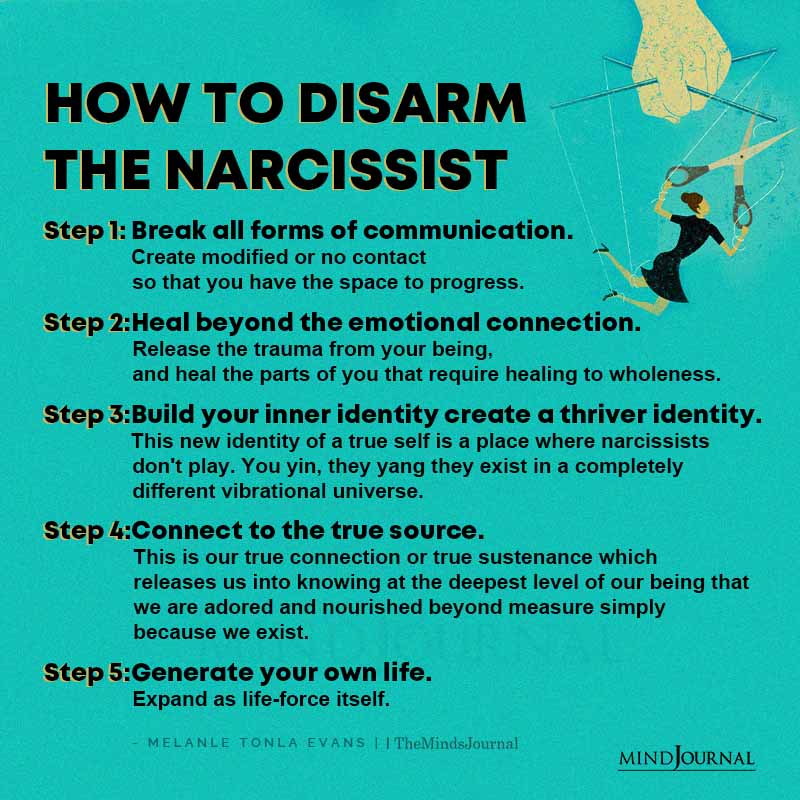
They will be able to assess the relationship and decide whether to stay or will have gained the courage to leave and not repeat the same codependent behavior. Specific strategies are required for dealing with a narcissist.
Some are described in my eBook, Dealing with a Narcissist: 8 Steps to Raise Self-Esteem and Set Boundaries with Difficult People. Look for the expanded and updated paperback coming soon, Dating, Loving, and Leaving a Narcissist: Essential Tools for Staying or Leaving Narcissistic and Abusive Relationships in bookstores and at www.whatiscodependency.com.
© 2022 Darlene Lancer
If you’re dealing with a narcissistic partner and feel like you give your power away, start by setting boundaries and if that doesn’t work, it’s best to distance yourself from them.
Written by: Darlene Lancer Originally Appeared on: whatiscodependency

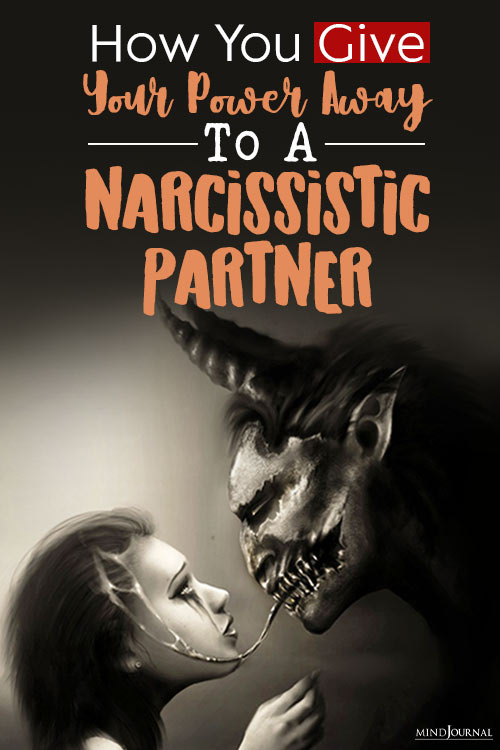

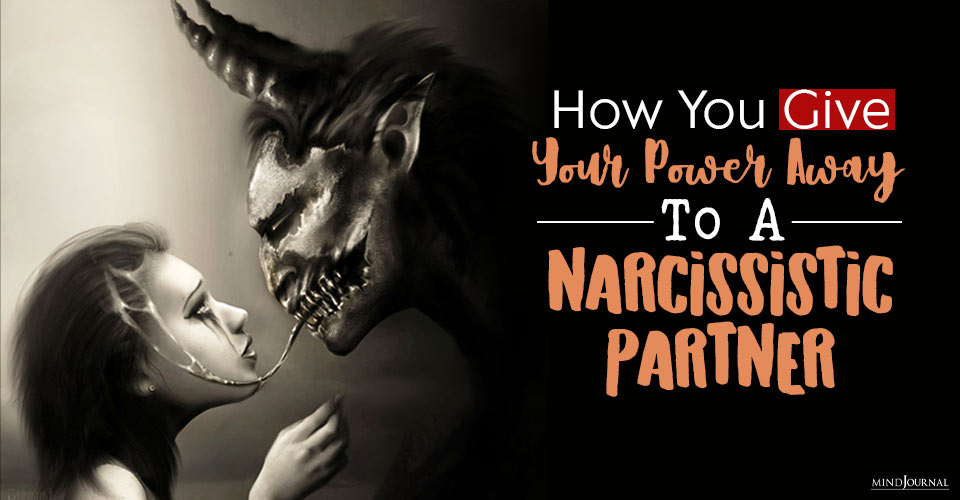
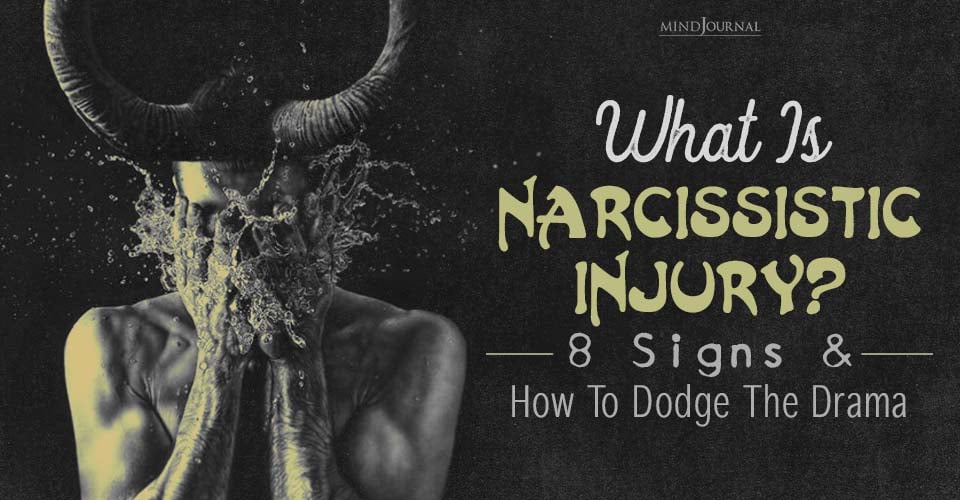






Leave a Reply